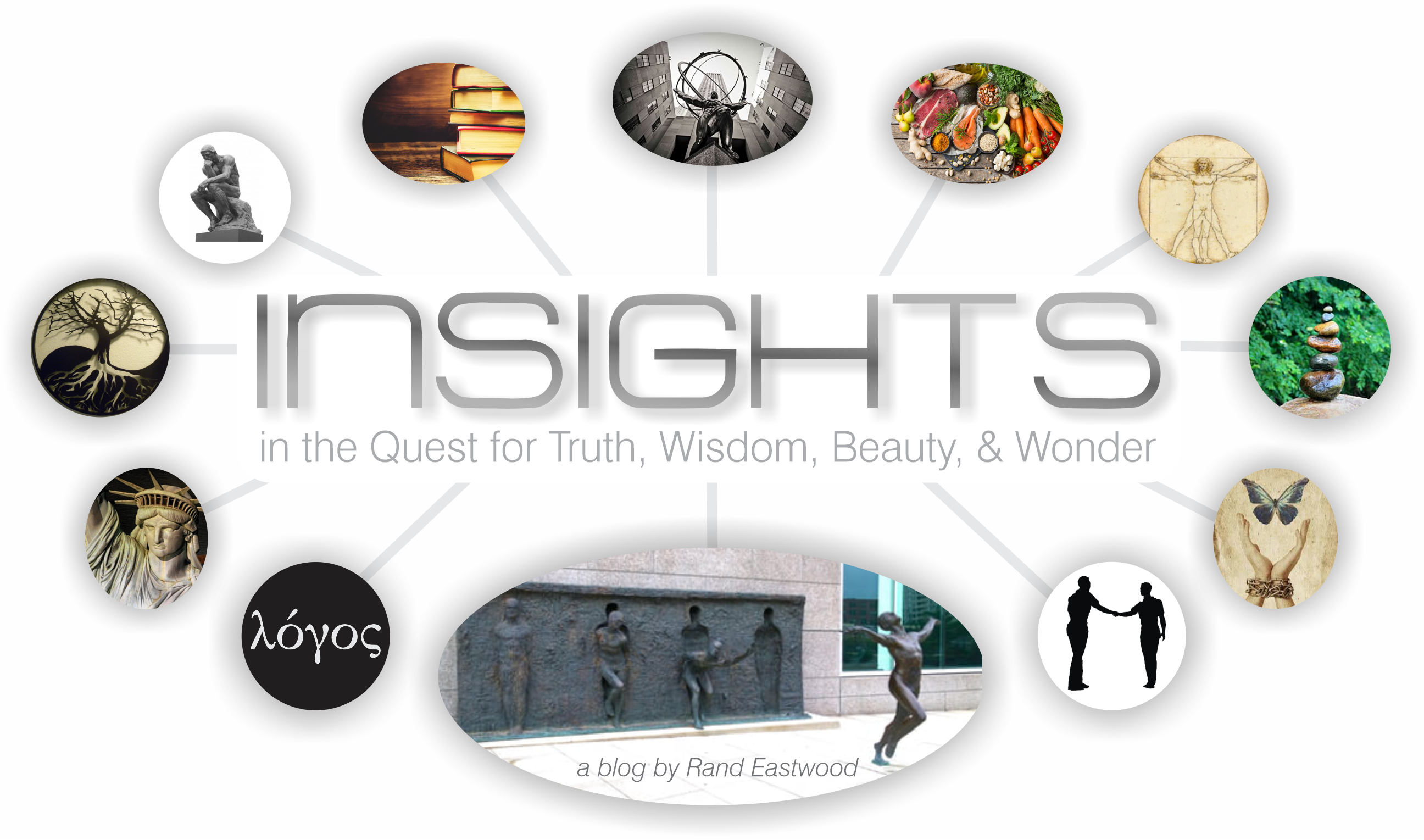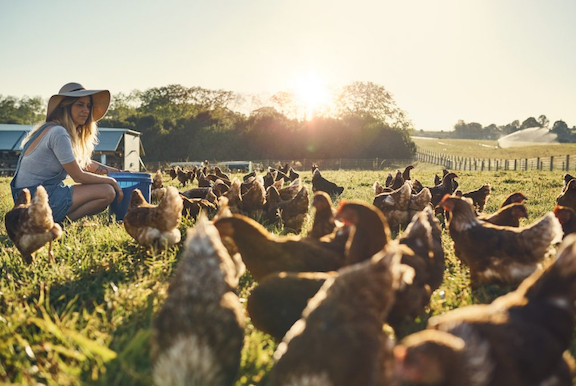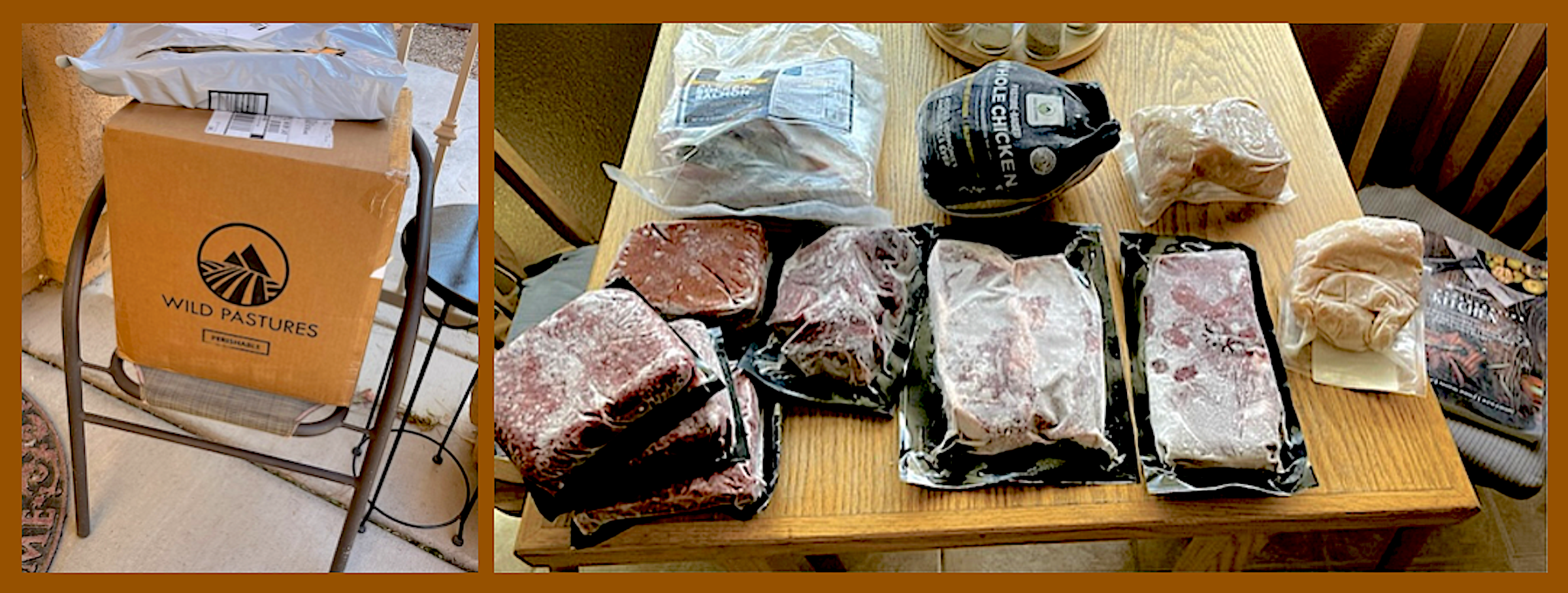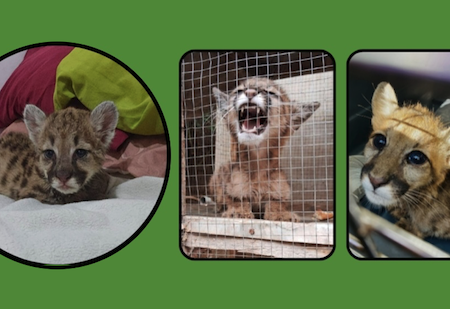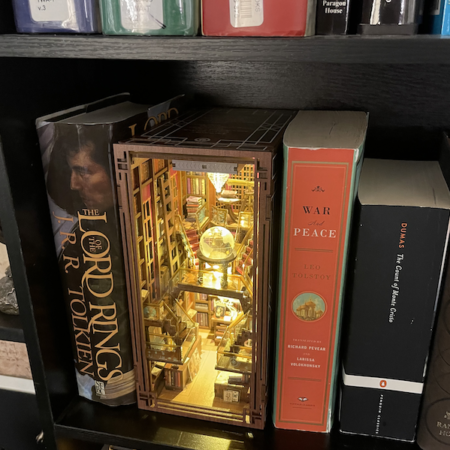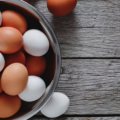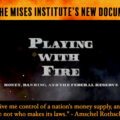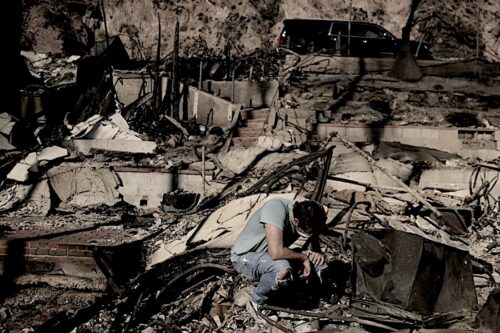My Issue With Meat Consumption
Let me start by saying that I have been working toward eliminating meat from my breakfast, which is typically my biggest and most important meal of the day. And I’m also cutting back on the portion of meat in the rest of my meals as well; but, even though I’m doing so for personal health reasons, I am having a bit of a moral issue with meat consumption: the cruelty, abuse, and needless suffering that the industry inflicts on farm animals during their lives.
Here’s my viewpoint:
Life consumes life to survive. It’s the way of the world, of all life on earth. I understand and accept this. So I have no moral issue with the consumption of meat (animals, or sentient beings). If I were lost in the wilderness and starving, and had to choose between starving to death, or killing and eating a rabbit, well…sad or upsetting as it may be, I’d opt for the rabbit. But I would have no moral qualms about it. After all, any other large predators would do the same to me, given the chance.
Again: life consumes life to survive.
So it’s not the consumption of animals per se that I take issue with, but the senseless abuse, cruelty, and suffering inflicted upon them in the process within the industrialized meat facilities. And that’s besides the fact that with the unnatural/unhealthy diet, meds/hormones, filthy environment, abuse/cruelty, and the inherent stress of all of it during these animals’ entire lives, factory-produced meat is extremely unhealthy to consume anyway (even eggs from factory-farmed chickens are extremely unhealthy).
So my issue concerning eating meat is not so much a moral one, but rather an ethical one.
In that context, following are some examples of animal abuse and cruelty inherent in the industry, finally ending with Tolstoy’s essay The First Step, or The Morals of Diet.
Examples of Animal Abuse/Cruelty in the Industry
From The Facts about Factory Farms published by The Humane Society:
“Inside a factory farm, [a chicken] spends her entire life in a space smaller than a standard sheet of paper. She can never spread her wings, scratch in the dirt or perch on a branch, which are natural behaviors crucial to her mental well-being. If she’s an egg-laying hen, she’ll spend the short year and a half of her life crammed in a cage with other chickens, until her egg production diminishes and she’s slaughtered.
If she’s raised for meat, she’s similarly doomed. She was selectively bred to grow rapidly, so virtually her entire life will be filled with suffering, says Josh Balk, HSUS vice president of Farm Animal Protection. Unlike normally active, inquisitive, social chickens, by the end of her life she has difficulty walking and spends most of her time lying down. Her heart grows too large and her lungs too small. She has muscle damage from growing so quickly and sores from standing and sleeping in a manure-filled shed. At just 45 days—when she’s still a baby—she reaches her full size and goes to the slaughterhouse.
The story is just as grim for pigs and cows. Taken from their mothers within a few weeks after birth, pigs live just six months before slaughter. Mother pigs spend much of their lives in gestation crates, confined so tightly they can’t turn around. These sensitive animals—who are smarter than our dogs—can’t socialize, root in the mud or engage in almost any natural behavior. At dairy operations, calves are taken from their mothers the day they are born, while mother cows are forcibly impregnated over and over to produce milk for calves they’ll never see again.”
And, speaking of pigs spending their lives in gestation crates, this episode of System Update by Glenn Greenwald depicts the horrors of those gestation crates, among other atrocities of industrialized farming. Just as I’ve conveyed above, at the beginning of the show Greenwald states:
“You do not need to be a vegan, a vegetarian, or anything else, to confront the savage and barbaric torture and immorality that these industries impose on sentient, emotionally complex and highly intelligent animals, solely to maximize profit for an already highly profitable industry.”
“One need not become a pacifist in order to denounce the horrors of war, just as one need not become vegan to denounce and work against the most extreme horrors and atrocities of factory farms.”
Watch it, if you dare (the program actually begins at the 8:20 mark):
Update: I also recently discovered the following video, showing cattle being “grass fed”…as you can see, it’s easy to visualize happy cows living contented lives out on natural pastures, eating grass and foraging for other natural food—when the reality is, they’re inside a factory farm having grass dumped on them from a machine, and it even appears that their heads are trapped between steel bars in the process, which is just cruel and abusive (though not unusual, as we’ve now seen). So even if the label claims that the livestock are “grass-fed”, doesn’t mean that the animals are happily grazing on open pastures, or even being treated humanely:
The First Step, or The Morals of Diet by Leo Tolstoy
And finally, I want to share the aforementioned essay by Leo Tolstoy, wherein, among other ideas, Tolstoy suggests that the first step toward a more humane world is to curtail man’s cruelty to animals. However, due to its length, I’ve elected to append the text to the bottom of this article for those who wish to read it here, and I’ve also created a PDF that can be downloaded here.
Note: Though Tolstoy is advocating vegetarianism in his essay—which became the preface to the book The Ethics of Diet: not necessarily my intent here; rather, it’s to (again) demonstrate the abhorrent abuse and cruelty that pervades the industrialized meat facilities. (On the other hand, once I finish reading the book I might just have a change of mind/heart….we’ll see).
My Solution: Natural/Pasture-Raised Meat
So in the interest of no longer supporting the needless cruelty and abuse of farm animals by the industrialized meat facilities, and supporting the humane treatment of animals instead, I’ve decided to try to stick to purchasing meat (and eggs) sourced from healthy, pasture-raised and humanely-treated animals, which live happy, healthy lives, usually on small, family farms, devoid of abuse and cruelty. And what’s more, the meat is much healthier for consumption as well.
And, just as I did in my search for healthy eggs, after much research I finally found precisely what I was looking for: Wild Pastures!
Wild Pastures offers beef, pork, poultry, and fish delivered across the U.S., all sourced from family farms that practice regenerative farming, humane animal husbandry, and all their fish is wild-caught as well!
And, upon extensive review, I’ve determined that their pricing rivals what I pay for bulk meat at Costco—only with so many more benefits!
From their website:
Pasture-Centric
Our pasture-raised animals are part of a natural ecosystem. Our farmers use rotational grazing practices that mimic nature. Therefore, we do not need to use synthetic fertilizers, pesticides, herbicides, hormones, or antibiotics. This beautiful process doesn’t require the external resources, such as massive amounts of GMO grain, required with environmentally-depleting conventional methods.
Raised In the USA
Many other providers source their meats from far outside of the United States. Instead of getting cheap meat from questionable sources and paying a premium on freight to bring it halfway across the world, we partner with family farmers in the USA. This is a far more beneficial model for American farmers, our customers, and the planet.
Whole Use, Zero Waste
In order to keep costs down we make every effort to optimize the use of the entire animal. We distribute various cuts evenly across our member base. But have no fear, you aren’t stuck with what we choose. You can customize each and every item in your box so you’ll only receive cuts you know and love!
It’s Our Mission… Literally
Could we charge a premium for the quality of meat we provide? Absolutely. However, we wholeheartedly believe that nourishing, sustainable, pasture-raised meats are both better for our health and the environment. We want to help transform the meat industry but that also means that more people need to be able to choose meat raised right. Therefore, we offer the highest quality meat at the lowest prices.
100% Grass Fed & Finished Beef
Our cattle eat grass… that’s it! We use rotational grazing which helps preserve and restore the health of the land while providing a more nutrient-rich, natural diet for the cattle.
(What does grass fed/grass finished mean?Grass-finished means the cattle ate nothing but grass and forage. Grass-fed, on the other hand, means the cattle were started on a grass diet but were then switched to a supplemental or fully grain-based diet to quickly gain weight before sale. So, while grass-fed can mean either a full or partial grass diet, and does not necessarily mean pasture-raised, grass-finished means a strictly grass diet, and strictly pasture-raised.)
Pasture-Raised Chicken
Our chickens spend their lives on pasture eating their natural diet of bugs and forage. Pasture-raised chicken is more nutrient-dense and richer in flavor.
(more about healthy vs. unhealthy chickens/eggs here)
Pasture-Raised Pork
Our pigs spend their lives on pasture foraging and exercising as they please. They are never confined and love to eat grass, turnips, squash, apples and more.
Wild-Caught Seafood
Our fish is wild caught in the pristine waters of Bristol Bay, Alaska – home of the world’s largest and most sustainable salmon run.
Customize Your Order
We allow you to customize every item in your order and choose between one-time purchase or subscription… all on your schedule.
Get Your Delivery
Your meat comes from American regenerative farms to your doorstep packaged in compostable, earth-friendly packaging.
Cook, Eat, & Enjoy!
Our grass fed and pasture-raised meats are nutrient-dense and rich in flavor. We have many recipes for you to try and enjoy!
So I’ve ordered my first case of meat, due to be delivered early next week. Once I get it, I plan to move all of my existing frozen meat from the kitchen freezer to the (emergency) storage freezer in the garage, and stock my kitchen freezer with this new healthier, sustainably farmed, and humanely raised meat and wild-caught fish, thus resolving my ethical dilemma in consuming meat.
So, rather than funding/enabling the abhorrent, inhumane treatment of the farm animals and toxic environment, I will be funding/enabling the healthy, humane treatment of the animals, as well as natural, sustainable farming practices.
And, once I’ve received and tried the meat, I plan to update this article with my further thoughts…
UPDATE Aug 6 2024: Well, I received the delivery, still frozen and dry ice intact! (I had some concerns about that, living in the Las Vegas desert, with temps in the triple digits right now…but no problema!)
Here are pics of the delivery (bonus – they offered me an awesome recipe book, tailored specifically to natural, pasture-raised, organic meats, discounted from $25 to $10 for my first order, you can see the book in the chair to the right):
UPDATE Aug 21 2024: Now that I’ve had the chance to try some of these meats, I wanted to report success! They are very good…the chicken was nothing short of wonderful, and I gotta say, the beef is a little “gamy”, reminds me of some deer meat a coworker gave me years ago…and I think that’s a GOOD thing, indicating that these animals truly are pasture-raised, eating an all-natural diet, just as deer would be in their natural habitat!
So again, I would recommend giving Wild Pastures a try—whether for ethical reasons as I am, or simply for health reason (which I am also, actually). I don’t think you’ll be disappointed! Check out their website and place your first order today!
UPDATE Oct 3 2024: Unfortunately, I must now report that this particular solution is not going to work for me, at least not at this juncture in my life…
Let me explain: When I do a meat stocking run at Costco, it usually runs between $175 – $225, depending. So let’s say average $200. So when I placed my order from Wild Pastures at roughly $200, I felt the cost was compatible with Costco. But here’s what I’ve now had time to determine: my meat stock from Costco generally lasts around 3 months, maybe a bit longer. But my stock from Wild Pastures only lasted 6 to 7 weeks. I still have some wild-caught salmon left, so let’s be generous and say 8 weeks. So it lasted something in the neighborhood of at most 2/3 to perhaps as little as 1/2 the duration of my typical Costco purchase. And, although much of the meat was very good (the ground beef and the chicken in particular were very tasty), the whole chicken was surprisingly small, and the packaged chicken pieces also seemed rather small, which also contributed to the short duration of the stock.
Now, I know that’s not the point; the point is to avoid supporting industrialized meat processing and its inherent unhealthy and inhumane livestock practices, and instead support sustainable farming and healthy, humane livestock practices. But on the other hand, I am struggling financially (always have, “starving artist” that I am), with winter approaching during which I’ll be taking as much as 3 months off my job, and there’s even a good possibility that I may be retiring altogether from that job/industry by the end of this year, cutting my income even further. So again, at this juncture of my life, I simply can’t afford the increase in food cost (for me, even bulk meat purchase at Costco can be financially straining), regardless of my desire to adhere to the ethics or principle of doing so.
Now, on the other hand: if I’m ever able to elevate my financial position in some way—be it one of my books takes off (like perhaps my upcoming novel Primeval when it’s finished, likely early in 2025), or my online gift shop starts to grow, or I secure work in some unforeseen field or vocation in the future that enables it—then by all means, I’ll gladly return to ordering from Wild Pastures. Until then, I’ll continue to investigate other options with the hope of finding something a little more within my means.
Or, I Could Go Vegetarian
On the other hand, just as I’ve ceased participating in our political system because government is institutionalized violence (often perpetrated against innocent people), and so any voluntary support or participation (even via “the lesser of the evils“) is immoral—and, as Tolstoy and others have pointed out, inconsistent with true Christianity (i.e., the teachings of Jesus)—I could also see eventually adopting the same principle here…
As it stands, I have three choices: 1) purchase meat from the industrialized farms, thereby supporting the abuse of the animals and the toxic environment, or 2) purchase pasture-raised, grass-finished meat (or wild-caught fish) from small farms, thereby supporting the healthy, humane treatment of the animals and natural, sustainable farming, or 3) cease purchasing meat altogether.
And as I mentioned above, I am in the process of reading The Ethics of Diet: , which advocates vegetarianism under the principle that killing animals is immoral…so I could see eventually changing my mind and ceasing meat consumption altogether, for moral rather than merely health reasons…I suppose we’ll see.
Now, as promised above:
The First Step, or The Morals of Diet by Leo Tolstoy
AGAIN: Though Tolstoy is advocating vegetarianism in his essay—which became the preface to the book The Ethics of Diet: not necessarily my intent here; rather, it’s to (again) demonstrate the abhorrent abuse and cruelty that pervades the industrialized meat facilities. (On the other hand, once I finish reading the book I might just have a change of mind/heart….we’ll see).
NOTE: This essay—which helped convince Gandhi to maintain his vegetarian diet—was originally written in 1891, then translated to English in 1900 by Louise Maude and Aylmer Maude, and then again by Leo Wiener in 1905. Many slightly varied versions of this essay have since emerged online, so I ask readers to forgive any discrepancies that may arise between the following version and others.
The First Step, or The Morals of Diet
by Leo Tolstoy
Fasting is an indispensable condition of a good life; but in fasting, as in self-control in general, the question arises, with what shall we begin—how to fast, how often to eat, what to eat, what to avoid eating? And as we can do no work seriously without regarding the necessary order of sequence, so also we cannot fast without knowing where to begin—with what to commence self-control in food.
Fasting! And even an analysis of how to fast, and where to begin! The notion seems ridiculous and wild to the majority of men.
I remember how, with pride at his originality, an Evangelical preacher, who was attacking monastic asceticism, once said to me “Ours is not a Christianity of fasting and privations, but of beefsteaks.” Christianity, or virtue in general—and beefsteaks!
During a long period of darkness and lack of all guidance, Pagan or Christian, so many wild, immoral ideas have made their way into our life (especially into that lower region of the first steps toward a good life—our relation to food, to which no one paid any attention), that it is difficult for us even to understand the audacity and senselessness of upholding, in our days, Christianity or virtue with beefsteaks.
We are not horrified by this association, solely because a strange thing has befallen us. We look and see not: listen and hear not. There is no bad odor, no sound, no monstrosity, to which man cannot become so accustomed that he ceases to remark what would strike a man unaccustomed to it. Precisely so it is in the moral region. Christianity and morality with beefsteaks!
A few days ago I visited the slaughter house in our town of Toula. It is built on the new and improved system practiced in large towns, with a view to causing the animals as little suffering as possible. It was on a Friday, two days before Trinity Sunday. There were many cattle there.
Long before this, when reading that excellent book. The Ethics of Diet, I had wished to visit a slaughter-house, in order to see with my own eyes the reality of the question raised when vegetarianism is discussed. But at first I felt ashamed to do so, as one is always ashamed of going to look at suffering which one knows is about to take place, but which one cannot avert, and so I kept putting off my visit.
But a little while ago I met on the road a butcher returning to Toula after a visit to his home. He is not yet an experienced butcher, and his duty is to stab with a knife. I asked him whether he did not feel sorry for the animals that he killed. He gave me the usual answer: “Why should I feel sorry? It is necessary.” But when I told him that eating flesh is not necessary, but is only a luxury, he agreed; and then he admitted that he was sorry for the animals.
“But what can I do? I must earn my bread,” he said. “At first I was afraid to kill. My father, he never even killed a chicken in all his life.” The majority of Russians cannot kill; they feel pity, and express the feeling by the word “fear.” This man had also been “afraid,” but he was so no longer. He told me that most of the work was done on Fridays, when it continues until the evening.
Not long ago I also had a talk with a retired soldier, a butcher, and he, too, was surprised at my assertion that it was a pity to kill, and said the usual things about its being ordained; but afterwards he agreed with me: “Especially when they are quiet, tame cattle. They come, poor things, trusting you. It is very pitiful.”
This is dreadful! Not the suffering and death of the animals, but that man suppresses in himself, unnecessarily, the highest spiritual capacity—that of sympathy and pity toward living creatures like himself—and by violating his own feelings becomes cruel. And how deeply seated in the human heart is the injunction not to take life!
Once, when walking from Moscow, I was offered a lift by some carters who were going from Serpouhof to a neighboring forest to fetch wood. It was the Thursday before Easter. I was seated in the first cart, with a strong, red, coarse carman, who evidently drank. On entering a village we saw a well-fed, naked, pink pig being dragged out of the first yard to be slaughtered. It squealed in a dreadful voice, resembling the shriek of a man. Just as we were passing they began to kill it. A man gashed its throat with a knife. The pig squealed still more loudly and piercingly, broke away from the men, and ran off covered with blood. Being near-sighted I did not see all the details. I saw only the human-looking pink body of the pig and heard its desperate squeal; but the carter saw all the details and watched closely. They caught the pig, knocked it down, and finished cutting its throat. When its squeals ceased the carter sighed heavily. “Do men really not have to answer for such things?” he said.
So strong is man’s aversion to all killing. But by example, by encouraging greediness, by the assertion that God has allowed it, and, above all, by habit, people entirely lose this natural feeling.
On Friday I decided to go to Toula, and, meeting a meek, kind acquaintance of mine, I invited him to accompany me.
“Yes, I have heard that the arrangements are good, and have been wishing to go and see it; but if they are slaughtering I will not go in.”
“Why not? That’s just what I want to see! If we eat flesh it must be killed.”
“No, no, I cannot!”
It is worth remarking that this man is a sportsman and himself kills animals and birds.
So we went to the slaughter house. Even at the entrance one noticed the heavy, disgusting, fetid smell, as of carpenter’s glue, or paint on glue. The nearer we approached, the stronger became the smell. The building is of red brick, very large, with vaults and high chimneys. We entered the gates. To the right was a spacious enclosed yard, three-quarters of an acre in extent—twice a week cattle are driven in here for sale—and adjoining this enclosure was the porter’s lodge. To the left were the chambers, as they are called—i.e., rooms with arched entrances, sloping asphalt floors, and contrivances for moving and hanging up the carcasses. On a bench against the wall of the porter’s lodge were seated half a dozen butchers, in aprons covered with blood, their tucked-up sleeves disclosing their muscular arms also besmeared with blood. They had finished their work half an hour before, so that day we could only see the empty chambers. Though these chambers were open on both sides, there was an oppressive smell of warm blood; the floor was brown and shining, with congealed black blood in the cavities.
One of the butchers described the process of slaughtering, and showed us the place where it was done. I did not quite understand him, and formed a wrong, but very horrible, idea of the way the animals are slaughtered; and I fancied that, as is often the case, the reality would very likely produce upon me a weaker impression than the imagination. But in this I was mistaken.
The next time I visited the slaughter house I went in good time. It was the Friday before Trinity—a warm day in June. The smell of glue and blood was even stronger and more penetrating than on my first visit. The work was at its height. The duty yard was full of cattle, and animals had been driven into all the enclosures beside the chambers.
In the street, before the entrance, stood carts to which oxen, calves, and cows were tied. Other carts drawn by good horses and filled with live calves, whose heads hung down and swayed about, drew up and were unloaded; and similar carts containing the carcasses of oxen, with trembling legs sticking out, with heads and bright red lungs and brown livers, drove away from the slaughter house. The dealers themselves, in their long coats, with their whips and knouts in their hands, were walking about the yard, either marking with tar cattle belonging to the same owner, or bargaining, or else guiding oxen and bulls from the great yard into the enclosures which lead into the chambers. These men were evidently all preoccupied with money matters and calculations, and any thought as to whether it was right or wrong to kill these animals was as far from their minds as were questions about the chemical composition of the blood that covered the floor of the chambers.
No butchers were to be seen in the yard; they were all in the chambers at work. That day about a hundred head of cattle were slaughtered. I was on the point of entering one of the chambers, but stopped short at the door. I stopped both because the chamber was crowded with carcasses which were being moved about, and also because blood was flowing on the floor and dripping from above. All the butchers present were besmeared with blood, and had I entered I, too, should certainly have been covered with it. One suspended carcass was being taken down, another was being moved toward the door, a third, a slaughtered ox, was lying with its white legs raised, while a butcher with strong hand was ripping up its tight-stretched hide.
Through the door opposite the one at which I was standing, a big, red, well-fed ox was led in. Two men were dragging it, and hardly had it entered when I saw a butcher raise a knife above its neck and stab it. The ox, as if all four legs had suddenly given way, fell heavily upon its belly, immediately turned over on one side, and began to work its legs and all its hind-quarters. Another butcher at once threw himself upon the ox from the side opposite to the twitching legs, caught its horns and twisted its head down to the ground, while another butcher cut its throat with a knife. From beneath the head there flowed a stream of blackish-red blood, which a besmeared boy caught in a tin basin. All the time this was going on the ox kept incessantly twitching its head as if trying to get up, and waved its four legs in the air. The basin was quickly filling, but the ox still lived, and, its stomach heaving heavily, both hind and fore legs worked so violently that the butchers held aloof. When one basin was full, the boy carried it away on his head to the albumen factory, while another boy placed a fresh basin, which also soon began to fill up. But still the ox heaved its body and worked its hind legs.
When the blood ceased to flow the butcher raised the animal’s head and began to skin it. The ox continued to writhe. The head, stripped of its skin, showed red with white veins, and kept the position given it by the butcher; on both sides hung the skin. Still the animal did not cease to writhe. Than another butcher caught hold of one of the legs, broke it, and cut it off. In the remaining legs and the stomach the convulsions still continued. The other legs were cut off and thrown aside, together with those of other oxen belonging to the same owner. Then the carcass was dragged to the hoist and hung up, and the convulsions were over.
Thus I looked on from the door at the second, third, fourth ox. It was the same with each: the same cutting off of the head with bitten tongue, and the same convulsed members. The only difference was that the butcher did not always strike at once so as to cause the animal’s fall. Sometimes he missed his aim, whereupon the ox leaped up, bellowed, and, covered with blood, tried to escape. But then his head was pulled under a bar, struck a second time, and he fell.
I afterwards entered by the door at which the oxen were led in. Here I saw the same thing, only nearer, and therefore more plainly. But chiefly I saw here, what I had not seen before, how the oxen were forced to enter this door. Each time an ox was seized in the enclosure and pulled forward by a rope tied to its horns, the animal, smelling blood, refused to advance, and sometimes bellowed and drew back. It would have been beyond the strength of two men to drag it in by force, so one of the butchers went round each time, grasped the animal’s tail and twisted it so violently that the gristle crackled, and the ox advanced.
When they had finished with the cattle of one owner, they brought in those of another. The first animal of his next lot was not an ox, but a bull —a fine, well-bred creature, black, with white spots on its legs, young, muscular, full of energy. He was dragged forward, but he lowered his head and resisted sturdily. Then the butcher who followed behind seized the tail, like an engine-driver grasping the handle of a whistle, twisted it, the gristle crackled, and the bull rushed forward, upsetting the men who held the rope. Then it stopped, looking sideways with its black eyes, the whites of which had filled with blood. But again the tail crackled, and the bull sprang forward and reached the required spot. The striker approached, took aim, and struck. But the blow missed the mark. The bull leaped up, shook his head, bellowed, and, covered with blood, broke free and rushed back. The men at the doorway all sprang aside: but the experienced butchers, with the dash of men inured to danger, quickly caught the rope; again the tail operation was repeated, and again the bull was in the chamber, where he was dragged under the bar, from which he did not again escape. The striker quickly took aim at the spot where the hair divides like a star, and, notwithstanding the blood, found it, struck, and the fine animal, full of life, collapsed, its head and legs writhing while it was bled and the head skinned.
“There, the cursed devil hasn’t even fallen the right way!” grumbled the butcher as he cut the skin from the head.
Five minutes later the head was stuck up, red instead of black, without skin; the eyes, that had shone with such splendid color five minutes before, fixed and glassy.
Afterwards I went into the compartment where small animals are slaughtered—a very large chamber with asphalt floor, and tables with backs, on which sheep and calves are killed. Here the work was already finished; in the long room, impregnated with the smell of blood, were only two butchers. One was blowing into the leg of a dead lamb and patting the swollen stomach with his hand; the other, a young fellow in an apron besmeared with blood, was smoking a bent cigarette. There was no one else in the long, dark chamber, filled with a heavy smell. After me there entered a man, apparently an ex-soldier, bringing in a young yearling ram, black with a white mark on its neck, and its legs tied. This animal he placed upon one of the tables, as if upon a bed. The old soldier greeted the butchers, with whom he was evidently acquainted, and began to ask when their master allowed them leave. The fellow with the cigarette approached with a knife, sharpened it on the edge of the table, and answered that they were free on holidays. The live ram was lying as quietly as the dead inflated one, except that it was briskly wagging its short little tail and its sides were heaving more quickly than usual. The soldier pressed down its uplifted head gently, without effort; the butcher, still continuing the conversation, grasped with his left hand the head of the ram and cut its throat. The ram quivered, and the little tail stiffened and ceased to wave. The fellow, while waiting for the blood to flow, began to relight his cigarette, which had gone out. The blood flowed and the ram began to writhe. The conversation continued without the slightest interruption. It was horribly revolting.
And how about those hens and chickens which daily, in thousands of kitchens, with heads cut off and streaming with blood, comically, dreadfully, flop about, jerking their wings? And see, a kind, refined lady will devour the carcasses of these animals with full assurance that she is doing right, at the same time asserting two contradictory propositions:
First, that she is, as her doctor assures her, so delicate that she cannot be sustained by vegetable food alone, and that for her feeble organism flesh is indispensable; and, secondly, that she is so sensitive that she is unable, not only herself to inflict suffering on animals, but even to bear the sight of suffering.
Whereas the poor lady is weak precisely because she has been taught to live upon food unnatural to man; and she cannot avoid causing suffering to animals — for she eats them.
I only wish to say that for a good life a certain order of good actions is indispensable; that if a man’s aspirations toward right living be serious they will inevitably follow one definite sequence, and in this sequence the first thing will be self-control in food — fasting.
And in fasting, if he be really and seriously seeking to live a good life, the first thing from which he will abstain will always be the use of animal food, because, to say nothing of the excitation of the passions caused by such food, its use is simply immoral, as it involves the performance of an act which is contrary to the moral feeling — killing;
We cannot pretend that we do not know this. We are not ostriches, and cannot believe that if we refuse to look at what we do not wish to see, it will not exist. This is especially the case when what we do not wish to see is what we wish to eat. If it were really indispensable, or, if not indispensable, at least in some way useful! But it is quite unnecessary, and only serves to develop animal feelings, to excite desire, and to promote fornication and drunkenness. And this is continually being confirmed by the fact that young, kind, undepraved people — especially women and girls — without knowing how it logically follows, feel that virtue is incompatible with beefsteaks, and, as soon as they wish to be good, give up eating flesh.
“But why, if the wrongfulness of animal food was known to humanity so long ago, have people not yet come to acknowledge this law?” will be asked by those who are accustomed to be led by public opinion rather by reason. The answer to this question is that the moral progress of humanity – which is the foundation of every other kind of progress – is always slow; but that the sign of true, not casual, progress is its uninterruptedness and its continual acceleration.
And the progress of vegetarianism is of this kind. That progress is expressed in the actual life of mankind, which from many causes is involuntarily passing more and more from carnivorous habits to vegetable food, and is also deliberately following the same path in a movement which shows evident strength, and which is growing larger and larger – viz. vegetarianism. That movement has during the last ten years advanced more and more rapidly. More and more books and periodicals on this subject appear every year; one meets more and more people who have given up meat; and abroad, especially Germany, England, and America, the number of vegetarian hotels and restaurants increases year by year.
This movement should cause special joy to those whose life lies in the effort to bring about the kingdom of God on earth, not because vegetarianism is in itself an important step towards that kingdom (all true steps are both important and unimportant), but because it is a sign that the aspiration of mankind towards moral perfection is serious and sincere, for it has taken the one unalterable order of succession natural to it, beginning with the first step.
One cannot fail to rejoice at this, as people could not fail to rejoice who, after striving to reach the upper story of a house by trying vainly and at random to climb the walls from different points, should at last assemble at the first step of the staircase and crowd towards it, convinced that there can be no way up except by mounting this first step of stairs.
Again, you can download a PDF here.
Like/Follow INSIGHTS Blog on Facebook • View Rand’s Books on Amazon
Visit Lifeology Store • Like/Follow Lifeology Store on Facebook
A Note To Readers:
If you found this article (or any of the others, for that matter) interesting, informative, entertaining, etc., please consider subscribing to the INSIGHTS email newsletter: simply enter your email into the form below (also in the right sidebar)—or, if you prefer, just use this simple quick sign-up form. (Bonus: INSIGHTS subscribers receive a 20% discount at Lifeology Store, at checkout simply enter the discount code included in the welcome email upon subscribing!)
↓↓↓ Also, please hit the “Like” (thumbs up) button below. Thanks! ~ Rand
